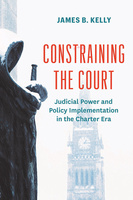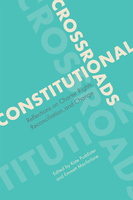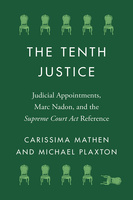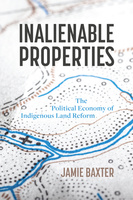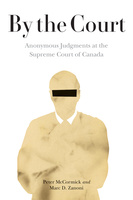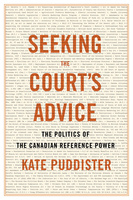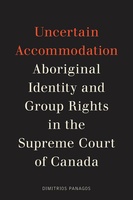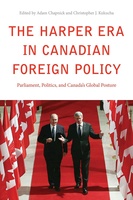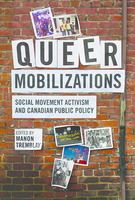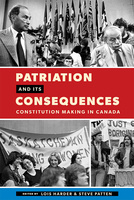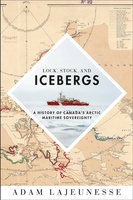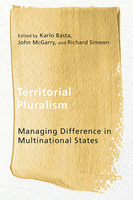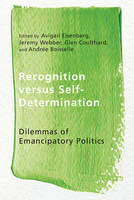Constraining the Court
Judicial Power and Policy Implementation in the Charter Era
Constraining the Court considers what happens when a statute involving a significant public policy issue is declared unconstitutional – and government disagrees.
Constitutional Crossroads
Reflections on Charter Rights, Reconciliation, and Change
Four decades after the adoption of the Constitution Act, 1982, Constitutional Crossroads assesses its legacy, focusing on the themes of rights, reconciliation, and constitutional change.
The Tenth Justice
Judicial Appointments, Marc Nadon, and the Supreme Court Act Reference
The Tenth Justice tells the complete story of one of the strangest sagas in Canadian legal history: the ill-fated appointment to the Supreme Court of Canada of Justice Marc Nadon.
Inalienable Properties
The Political Economy of Indigenous Land Reform
Inalienable Properties explores the contrasting approaches taken by local leaders to property rights and development in four Indigenous communities.
Refugee Law after 9/11
Sanctuary and Security in Canada and the United States
The first major study to compare changes made to Canadian and US refugee law after and because of 9/11, Refugee Law after 9/11 uncovers crucial connections among refugee law, security relativism, and national self-image.
By the Court
Anonymous Judgments at the Supreme Court of Canada
By the Court is the first major study of unanimous and anonymous legal decisions: the unique “By the Court” format used by the Supreme Court of Canada.
Seeking the Court’s Advice
The Politics of the Canadian Reference Power
The first comprehensive analysis of the Canadian reference power, Seeking the Court’s Advice examines how policy makers use the courts strategically to achieve political ends.
Uncertain Accommodation
Aboriginal Identity and Group Rights in the Supreme Court of Canada
A bold analysis of what happened when Canada attempted to extend group rights to Aboriginal people in the early 1980s and why it went wrong.
The Harper Era in Canadian Foreign Policy
Parliament, Politics, and Canada’s Global Posture
The first comprehensive analysis of Canadian foreign policy during the Harper era.
The Call of the World
A Political Memoir
In this fiercely intelligent memoir, Bill Graham – Canada’s minister of foreign affairs and minister of defence during the tumultuous years following 9/11 – takes us on a personal journey through a period of upheaval in global and domestic politics, arguing that global institutions based on international law offer the best hope for a safer, more prosperous, and just world.
Queer Mobilizations
Social Movement Activism and Canadian Public Policy
Canada is considered a leader when it comes to LGBTQ rights, but as Queer Mobilizations shows, this has less to do with progressive politicians than with the work of queer activists who have fought for policy changes from their local city halls to the chambers of Parliament.
Patriation and Its Consequences
Constitution Making in Canada
Patriation and Its Consequences examines the political events and struggles that resulted in the 1981 agreement to patriate the Canadian constitution and sheds light on the political consequences of this key moment in Canadian history.
Lock, Stock, and Icebergs
A History of Canada’s Arctic Maritime Sovereignty
Lock, Stock, and Icebergs recounts the events, pressures, and behind-the-scenes negotiations that shaped Canada’s legal claim to the Northwest Passage and the waters of the Arctic Archipelago.
Territorial Pluralism
Managing Difference in Multinational States
This volume examines the implications of territorial pluralism for the peaceful and democratic management of difference in states characterized by ethnic, national, linguistic, or cultural divisions.
Recognition versus Self-Determination
Dilemmas of Emancipatory Politics
This book re-evaluates the role of recognition in analyzing relations between groups in plural societies, the position of indigenous peoples in settler societies, and the principle of the self-determination of peoples.

